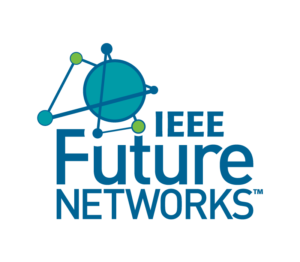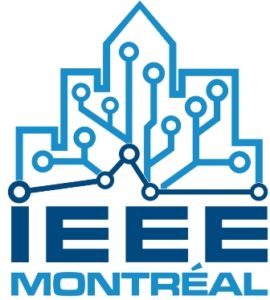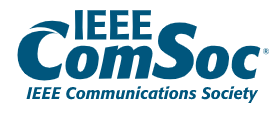12 October 2022 // 11:00 – 12:30 // Virtual
SCOPE
Sixth generation (6G) systems will be required to meet diverse constraints in an integrated ground-air-space global network. In particular, meeting overly aggressive latency constraints, operating in massive connectivity regimes, with low energy footprint and low computational effort, while providing explicit security guarantees, can be challenging. In addition, the extensive introduction of artificial intelligence (AI) and machine learning (ML) and the rapid advances in quantum computing are further developments that will increase the attack surface of 6G systems. Quite importantly, the massive scale deployment of low-end Internet of things (IoT) nodes, often produced following non-homogeneous production processes, and, importantly, with expected lifespans exceeding 10 years, poses pressing questions with respect to the conceptualization of the overall security architecture. In this setting, quality of security (QoSec) is envisioned as a flexible security framework for future networks with highly diverse non-functional requirements. In parallel, the integration of communications and sensing, along with embedded (on-device) AI, can provide the foundations for building autonomous and adaptive security controls, dabbed as context-aware security. It is in this framework that we envision the incorporation of physical layer security (PLS) schemes in 6G security protocols, introducing security controls at all layers, for the first time. This exciting prospect does not come, however, without challenges. Despite intense research interest in PLS for more than two decades, it’s incorporation in actual security products remains rather elusive, with a few exceptions in terms of RF fingerprinting (physec.de) and multi-factor authentication (silencelaboratories.com). The proposed workshop aims at closing the gap between theory and practice in PLS and will focus on proposals for PLS primitives and schemes with explicit security guarantees.
KEYNOTE SPEAKERS
 Vincent Poor(joint work with Stefano Tomasin, Hongliang Zhang and Arsenia Chorti)
Vincent Poor(joint work with Stefano Tomasin, Hongliang Zhang and Arsenia Chorti)
Challenge-Response Physical Layer Authentication Over Partially Controllable Channels
Abstract: Challenge-response is a security mechanism well known for authentication using encryption. In this talk, we will discuss new challenge-response mechanisms in the context of physical layer security (PLS). The verifier, instead of sending a challenge, changes the physical properties of the electromagnetic environment and expects to receive a properly modified signal from the device under verification. We thus introduce the concept of partially controllable channels that enable such signal propagation medium changes. We also show that current and future communication systems already entail several examples of such partially controllable channels, e.g., when using intelligent reflective surfaces (IRSs) or relays, or for communications among drones. Several security issues associated with the new challenge-response mechanisms will discussed as well as future topics for research in this area.
Bio: H. Vincent Poor is the Michael Henry Strater University Professor at Princeton University, where his interests include information theory, machine learning and network science, and their applications in wireless networks, energy systems, and related areas. His publications in these areas include the recent book Machine Learning and Wireless Communications (Cambridge University Press, 2022). He is a member of U.S. National Academy of Engineering and U.S. National Academy of Sciences, and also a foreign member of the Chinese Academy of Sciences, the Royal Society and other national and international academies. He received the IEEE Alexander Graham Bell Medal in 2017.
 Gerhard P. Fettweis, Vodafone Chair Professor at TU Dresden, Germany
Gerhard P. Fettweis, Vodafone Chair Professor at TU Dresden, Germany
Trustworthy Digitization and Democracy
Abstract: After 3G was the opener for the mobile internet, the key challenges addressed by 4G were to increase the data rate while dramatically reducing power consumption and cost of terminals. Again, after 5G being a door opener for the Tactile Internet (remote control of objects) the key challenges to be addressed by 6G seem to be energy reduction and cost. However, as we are controlling physical objects (robots), in addition we need a much deeper level of trustworthiness deeply embedded in 6G. This starts at the physical layer and includes the idea of physical layer security. Therefore, we propose the idea of an integrated approach of addressing the energy efficiency and the physical layer security in one “Gearbox PHY” as a possible way forward.
Short Bio: Gerhard P. Fettweis, F’09, earned a Ph.D. under H. Meyr at RWTH Aachen in 1990. After a postdoc at IBM Research, San Jose, he joined TCSI, Berkeley, USA. Since 1994 he is Vodafone Chair Professor at TU Dresden, Germany. Since 2018 he is also founding director/CEO of the Barkhausen Institute. 2019 he was elected into the DFG Senate (German Research Foundation). He researches wireless transmission and chip design, coordinates 5G++Lab Germany, spun-out 17 tech and 3 non-tech startups, and is member of the German Academy of Sciences (Leopoldina), and German Academy of Engineering (acatech).
ACCEPTED PAPERS
Intelligent Integrated Cross-layer Authentication for Efficient Mutual Verification in UDN with Guaranteed Security-of-Service // Virtual
He Fang (Sochoow University, China); Xianbin Wang (Western University, Canada); Wenrun Zhu (Soochow University, China)
Physical Layer Security Based Enabling Technologies for 6G Communications Values // Virtual
Eduard A Jorswieck (Technische Universität Braunschweig, Germany); Pin-Hsun Lin (TU Braunschweig, Germany); Carsten Janda (Technische Universität Braunschweig, Germany)
Jamming Threats And Countermeasures of the Terahertz OOK Mode in IEEE 802.15.3d // On-site
Hichem Guerboukha, Rabi Shrestha and Zhaoji Fang (Brown University, USA); Josep M Jornet (Northeastern University, USA); Edward W. Knightly (Rice University, USA); Daniel Mittleman (Brown University, USA) // (Note: This paper has been scheduled on 14 October, 11:00 – 12:30, WS4)
On Securing MAC Layer Broadcast Signals Against Covert Channel Exploitation in 5G, 6G & Beyond – Reza S Soosahabi (University of Louisiana Lafayette & Keysight Technologies, USA); Magdy A Bayoumi (University of Louisiana Lafayette, USA) // (Note: This paper has been accepted in Technical Track 5)
WORKSHOP ORGANIZERS
- Arsenia Chorti, ETIS UMR 8051, CY University, ENSEA, CNRS & ETIS, France, arsenia.chorti@ensea.fr
- Stefano Tomasin, University of Padova, Italy, tomasin@dei.unipd.it
- Nikolaos Pappas, Linköping University, Sweden, nikolaos.pappas@liu.se
- Parthajit Mohapatra, Indian Institute of Technology Tirupati, India, parthajit.mohapatra@gmail.com
- Eman Hammad, University of Toronto, Canada, eman.hammad@gmail.com
- Ashutosh Dutta, Johns Hopkins University Applied Physics Labs (JHU/APL), USA, ashutosh.dutta@ieee.org
 Arsenia Chorti: Arsenia (Ersi) Chorti is a Professor at the École Nationale Supérieure de l’Électronique et de ses Applications (ENSEA), Joint Head of the Information, Communications and Imaging (ICI) Group of the ETIS Lab UMR 8051, leader of the Wireless Connectivity group of the Barkhausen Institut in Germany and a Visiting Scholar at Princeton and Essex Universities. Her research spans the areas of wireless communications and wireless systems security for 5G and 6G, with a particular focus on physical layer security. Current research topics include: context aware security, multi-factor authentication protocols, 5G / 6G and IoT, anomaly detection, machine learning for communications, new multiple access techniques and scheduling. She is a Senior IEEE Member, member of the IEEE INGR on Security and of the IEEE P1951.1 standardization workgroup (Smart Cities), member of the Competitive Pole Systematic and of the PhD Thesis GdR ISIS Award Committee in France. Since October 2021 she is chairing the IEEE Focus Group on Physical Layer Security.
Arsenia Chorti: Arsenia (Ersi) Chorti is a Professor at the École Nationale Supérieure de l’Électronique et de ses Applications (ENSEA), Joint Head of the Information, Communications and Imaging (ICI) Group of the ETIS Lab UMR 8051, leader of the Wireless Connectivity group of the Barkhausen Institut in Germany and a Visiting Scholar at Princeton and Essex Universities. Her research spans the areas of wireless communications and wireless systems security for 5G and 6G, with a particular focus on physical layer security. Current research topics include: context aware security, multi-factor authentication protocols, 5G / 6G and IoT, anomaly detection, machine learning for communications, new multiple access techniques and scheduling. She is a Senior IEEE Member, member of the IEEE INGR on Security and of the IEEE P1951.1 standardization workgroup (Smart Cities), member of the Competitive Pole Systematic and of the PhD Thesis GdR ISIS Award Committee in France. Since October 2021 she is chairing the IEEE Focus Group on Physical Layer Security.
 Stefano Tomasin was born in Venice and he received the Ph.D. degree in Telecommunications Engineering from the University of Padova, Italy, in 2003. In 2002 he joined the University of Padova where he is now Full Professor. He has been on leave at Philips Research (Eindhoven, Netherlands) in 2002, Qualcomm Research Laboratories (San Diego, California) in 2004, Polytechnic University (Brooklyn, New York) in 2007 and Huawei Mathematical and Algorithmic Sciences Laboratory (Boulogne-Billancourt, France) in 2015. His current research interests include physical layer security and signal processing for wireless communications, with application to cellular systems. In 2011-2017 he has been an Editor of the IEEE Transactions of Vehicular Technologies, in 2017-2021 he has been Editor of IEEE Transactions on Signal Processing, and since 2020 he is Editor of the IEEE Transactions on Information Forensics and Security. Since 2011 he is also Editor of EURASIP Journal of Wireless Communications and Networking.
Stefano Tomasin was born in Venice and he received the Ph.D. degree in Telecommunications Engineering from the University of Padova, Italy, in 2003. In 2002 he joined the University of Padova where he is now Full Professor. He has been on leave at Philips Research (Eindhoven, Netherlands) in 2002, Qualcomm Research Laboratories (San Diego, California) in 2004, Polytechnic University (Brooklyn, New York) in 2007 and Huawei Mathematical and Algorithmic Sciences Laboratory (Boulogne-Billancourt, France) in 2015. His current research interests include physical layer security and signal processing for wireless communications, with application to cellular systems. In 2011-2017 he has been an Editor of the IEEE Transactions of Vehicular Technologies, in 2017-2021 he has been Editor of IEEE Transactions on Signal Processing, and since 2020 he is Editor of the IEEE Transactions on Information Forensics and Security. Since 2011 he is also Editor of EURASIP Journal of Wireless Communications and Networking.
 Nikolaos Pappas received the B.Sc. degree in computer science, the B.Sc. degree in mathematics, the M.Sc. degree in computer science, and the Ph.D. degree in computer science from the University of Crete, Greece, in 2005, 2012, 2007, and 2012, respectively. From 2005 to 2012, he was a Graduate Research Assistant with the Telecommunications and Networks Laboratory, Institute of Computer Science, Foundation for Research and Technology—Hellas, Heraklion, Greece, and a Visiting Scholar with the Institute of Systems Research, University of Maryland at College Park, College Park, MD, USA. From 2012 to 2014, he was a postdoctoral Researcher with the Department of Telecommunications, CentraleSupélec, Gif-sur-Yvette, France. He is currently an Associate Professor with the Department of Computer and Information Science, Linköping University, Linköping, Sweden. His main research interests include the field of wireless communication networks with an emphasis on semantics-aware communications, energy harvesting networks, network-level cooperation, age of information, and stochastic geometry. Dr. Pappas has served as the Symposium Co-Chair of the IEEE International Conference on Communications in 2022 and the IEEE Wireless Communications and Networking Conference in 2022. From 2013 to 2018, he was an Editor of the IEEE COMMUNICATIONS LETTERS. He was a Guest Editor of the IEEE INTERNET OF THINGS JOURNAL on “Age of Information and Data Semantics for Sensing, Communication and Control Co-Design in IoT.” He is also an Editor of the IEEE TRANSACTIONS ON COMMUNICATIONS, the IEEE Transactions on Machine Learning in Communications and Networking, the IEEE/KICS JOURNAL OF COMMUNICATIONS AND NETWORKS, and the IEEE OPEN JOURNAL OF THE COMMUNICATIONS SOCIETY and an Expert Editor for invited papers of the IEEE COMMUNICATIONS LETTERS.
Nikolaos Pappas received the B.Sc. degree in computer science, the B.Sc. degree in mathematics, the M.Sc. degree in computer science, and the Ph.D. degree in computer science from the University of Crete, Greece, in 2005, 2012, 2007, and 2012, respectively. From 2005 to 2012, he was a Graduate Research Assistant with the Telecommunications and Networks Laboratory, Institute of Computer Science, Foundation for Research and Technology—Hellas, Heraklion, Greece, and a Visiting Scholar with the Institute of Systems Research, University of Maryland at College Park, College Park, MD, USA. From 2012 to 2014, he was a postdoctoral Researcher with the Department of Telecommunications, CentraleSupélec, Gif-sur-Yvette, France. He is currently an Associate Professor with the Department of Computer and Information Science, Linköping University, Linköping, Sweden. His main research interests include the field of wireless communication networks with an emphasis on semantics-aware communications, energy harvesting networks, network-level cooperation, age of information, and stochastic geometry. Dr. Pappas has served as the Symposium Co-Chair of the IEEE International Conference on Communications in 2022 and the IEEE Wireless Communications and Networking Conference in 2022. From 2013 to 2018, he was an Editor of the IEEE COMMUNICATIONS LETTERS. He was a Guest Editor of the IEEE INTERNET OF THINGS JOURNAL on “Age of Information and Data Semantics for Sensing, Communication and Control Co-Design in IoT.” He is also an Editor of the IEEE TRANSACTIONS ON COMMUNICATIONS, the IEEE Transactions on Machine Learning in Communications and Networking, the IEEE/KICS JOURNAL OF COMMUNICATIONS AND NETWORKS, and the IEEE OPEN JOURNAL OF THE COMMUNICATIONS SOCIETY and an Expert Editor for invited papers of the IEEE COMMUNICATIONS LETTERS.
 Parthajit Mohapatra obtained his Ph. D. degree in Electrical Communication Engineering from Indian Institute of Science, Bangalore, India, in 2015. He was working as a postdoctoral research fellow at iTrust center for research in cyber security at Singapore University of Technology and Design (SUTD), Singapore, from March 2015 – July 2016. He was working as an assistant professor at G. S. Sanyal School of Telecommunications at Indian Institute of Technology, Kharagpur, India, from August 2016 – July 2018. Since July 2018, he is working as an Assistant Professor at the Department of Electrical Engineering, Indian Institute of Technology Tirupati. He was a co-organizer for a special session on “Security and Trust” in 18th IEEE International Workshop on Signal Processing Advances in Wireless Communications (SPAWC) 2017, held at Hokkaido University, Hokkaido, Japan between 3rd July and 6th July, 2017. His research interests are primarily in the area of short packet communication, Physical Layer Secrecy, Union of Physical and Network Layer Techniques, and Communication beyond 5G.
Parthajit Mohapatra obtained his Ph. D. degree in Electrical Communication Engineering from Indian Institute of Science, Bangalore, India, in 2015. He was working as a postdoctoral research fellow at iTrust center for research in cyber security at Singapore University of Technology and Design (SUTD), Singapore, from March 2015 – July 2016. He was working as an assistant professor at G. S. Sanyal School of Telecommunications at Indian Institute of Technology, Kharagpur, India, from August 2016 – July 2018. Since July 2018, he is working as an Assistant Professor at the Department of Electrical Engineering, Indian Institute of Technology Tirupati. He was a co-organizer for a special session on “Security and Trust” in 18th IEEE International Workshop on Signal Processing Advances in Wireless Communications (SPAWC) 2017, held at Hokkaido University, Hokkaido, Japan between 3rd July and 6th July, 2017. His research interests are primarily in the area of short packet communication, Physical Layer Secrecy, Union of Physical and Network Layer Techniques, and Communication beyond 5G.
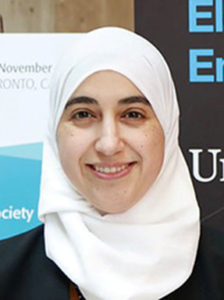 Eman Hammad is a cybersecurity & interdisciplinary professional focusing on trustworthy & resilient complex systems and emerging technologies such as 5G/6G, IoT and intelligence. She obtained her PhD in Electrical & Computer Engineering from the University of Toronto. She is the director of the innovations in Systems Trust & Resilience (iSTAR) lab. Eman’s work has been published in more than 50 papers, and was recognized with merit awards (best paper award, best poster award). Most recently, Eman was honored as one of Canada’s Top 20 Women in Cybersecurity. She is a senior IEEE member currently serving as Toronto ComSoc chair, and INGR IEEE 5G Security working group co-chair. She delivered numerous invited talks and panels in academic and industrial conferences, chaired and co-chaired several conferences and workshops. Her service has been recognized by IEEE exceptional, chapter achievement, and exemplary service awards. Eman is an active advocate for diversity and inclusion in STEM and Cybersecurity.
Eman Hammad is a cybersecurity & interdisciplinary professional focusing on trustworthy & resilient complex systems and emerging technologies such as 5G/6G, IoT and intelligence. She obtained her PhD in Electrical & Computer Engineering from the University of Toronto. She is the director of the innovations in Systems Trust & Resilience (iSTAR) lab. Eman’s work has been published in more than 50 papers, and was recognized with merit awards (best paper award, best poster award). Most recently, Eman was honored as one of Canada’s Top 20 Women in Cybersecurity. She is a senior IEEE member currently serving as Toronto ComSoc chair, and INGR IEEE 5G Security working group co-chair. She delivered numerous invited talks and panels in academic and industrial conferences, chaired and co-chaired several conferences and workshops. Her service has been recognized by IEEE exceptional, chapter achievement, and exemplary service awards. Eman is an active advocate for diversity and inclusion in STEM and Cybersecurity.
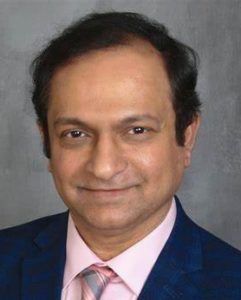 Ashutosh Dutta is currently Senior Wireless Research Scientist, JHU/APL Sabbatical Fellow at Johns Hopkins University Applied Physics Labs (JHU/APL), and adjunct faculty at Johns Hopkins University, USA. His career, spanning more than 30 years, includes Director of Technology Security and Lead Member of Technical Staff at AT&T, CTO of Wireless at a Cybersecurity company NIKSUN, Inc., Senior Scientist in Telcordia Research, Director of Central Research Facility at Columbia University, adjunct faculty at NJIT, and Computer Engineer with TATA Motors. He has more than 90 conference and journal publications, three book chapters, and 31 issued patents. Ashutosh is co-author of the book, titled, “Mobility Protocols and Handover Optimization: Design, Evaluation and Application,” published by IEEE and John & Wiley that has recently been translated into Chinese Language. Ashutosh served as the chair for IEEE Princeton / Central Jersey Section, Industry Relation Chair for Region 1 and MGA, Pre-University Coordinator for IEEE MGA and vice chair of Education Society Chapter of PCJS. He co-founded the IEEE STEM conference (ISEC) and helped to implement EPICS (Engineering Projects in Community Service) projects in several high schools. Ashutosh currently serves as the Director of Industry Outreach for IEEE Communications Society and is the founding Co-Chair for IEEE Future Networks Initiative. He also serves as IEEE Communications Society’s Distinguished Lecturer for 2017-2020. Ashutosh serves as the general Co-Chair for the premier IEEE 5G World Forum. He was recipient of the prestigious 2009 IEEE MGA Leadership award and 2010 IEEE-USA professional leadership award. Ashutosh obtained his BS in Electrical Engineering from NIT Rourkela, India, MS in Computer Science from NJIT, and Ph.D. in Electrical Engineering from Columbia University, NY.
Ashutosh Dutta is currently Senior Wireless Research Scientist, JHU/APL Sabbatical Fellow at Johns Hopkins University Applied Physics Labs (JHU/APL), and adjunct faculty at Johns Hopkins University, USA. His career, spanning more than 30 years, includes Director of Technology Security and Lead Member of Technical Staff at AT&T, CTO of Wireless at a Cybersecurity company NIKSUN, Inc., Senior Scientist in Telcordia Research, Director of Central Research Facility at Columbia University, adjunct faculty at NJIT, and Computer Engineer with TATA Motors. He has more than 90 conference and journal publications, three book chapters, and 31 issued patents. Ashutosh is co-author of the book, titled, “Mobility Protocols and Handover Optimization: Design, Evaluation and Application,” published by IEEE and John & Wiley that has recently been translated into Chinese Language. Ashutosh served as the chair for IEEE Princeton / Central Jersey Section, Industry Relation Chair for Region 1 and MGA, Pre-University Coordinator for IEEE MGA and vice chair of Education Society Chapter of PCJS. He co-founded the IEEE STEM conference (ISEC) and helped to implement EPICS (Engineering Projects in Community Service) projects in several high schools. Ashutosh currently serves as the Director of Industry Outreach for IEEE Communications Society and is the founding Co-Chair for IEEE Future Networks Initiative. He also serves as IEEE Communications Society’s Distinguished Lecturer for 2017-2020. Ashutosh serves as the general Co-Chair for the premier IEEE 5G World Forum. He was recipient of the prestigious 2009 IEEE MGA Leadership award and 2010 IEEE-USA professional leadership award. Ashutosh obtained his BS in Electrical Engineering from NIT Rourkela, India, MS in Computer Science from NJIT, and Ph.D. in Electrical Engineering from Columbia University, NY.
Sign up for email alerts to get the latest news and announcements for the 2022 IEEE Future Networks World Forum. If you have specific questions, contact us at FNWF@ieee.org.












